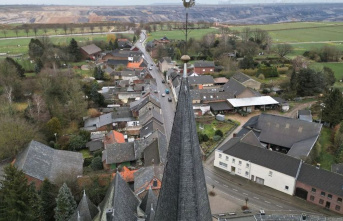For the first time in years, a case of mad cow disease (BSE) has been found in a cow in Switzerland. It is the so-called atypical variant, reports the Federal Food Safety and Veterinary Office. "In contrast to the classic form, atypical BSE can occur spontaneously and without connection to animal meal in animal feed," the agency said. "The animal body was burned and therefore poses no danger to other animals or humans."
The case was discovered as part of routine BSE surveillance in the canton of Graubünden. It was a twelve-year-old cow that had been registered for slaughter.
BSE is the abbreviation for Bovine Spongiform Encephalopathy. In the case of the disease, the brain matter of cattle regresses. With classic BSE, animals become infected by feeding them animal meal containing prions.
Eating meat contaminated with BSE can cause the deadly Creutzfeldt-Jakob disease in humans. Feeding animal meal to ruminants has been banned in Switzerland since December 1, 1990, and is also banned in many other countries.
At the end of the 1980s, BSE was mainly found in Great Britain. There were more than 180,000 cases there - going back to the feeding of contaminated animal meal. In Germany, a cow was diagnosed with BSE for the first time in 2000. There were a total of 400 cases, including three atypical ones. The youngest was found in Bavaria in 2021.
Only in February was a case of atypical mad cow disease in a cow reported from the Netherlands. The Ministry of Agriculture said the meat had not entered the food chain. The last time there was such a case in the Netherlands was in 2011.
Also in February, after a case of atypical mad cow disease, Brazil temporarily suspended exports of beef to its largest customer country, China.











